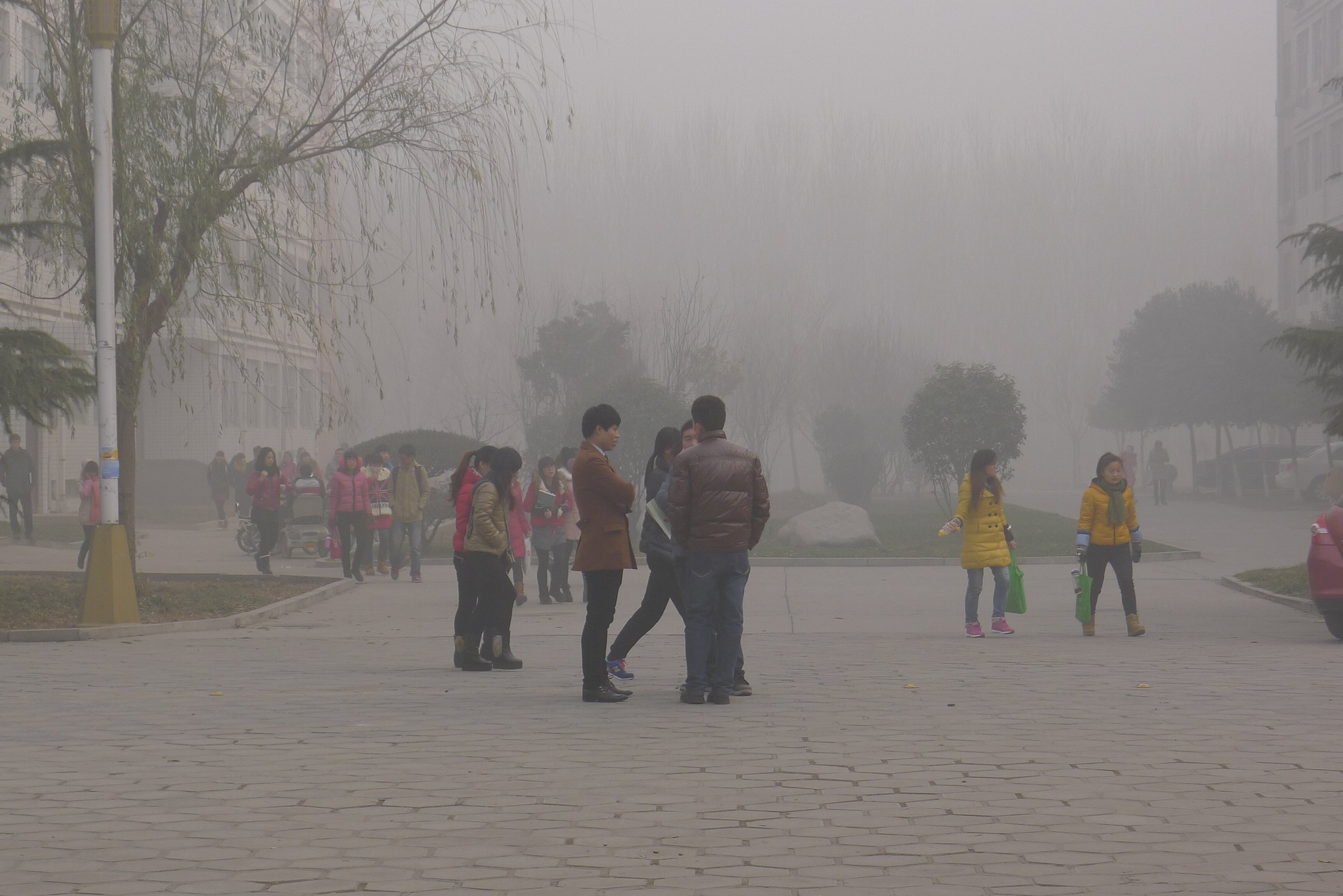The Link Between Air Pollution and Skin Health
Image: ‘Bathed in air pollution, Henan Province, China’ by V.T. Polywoda is licensed under CC BY-NC-ND 2.0 DEED
For a phenomenon that has been around for decades and has shown promising signs of a steady decline, air pollution is one of the most detrimental health factors in modern society, especially for those who suffer from skin conditions.
Atopic dermatitis, an umbrella term reserved for those with eczema or psoriasis, is a life-altering condition in which the skin’s barrier is externally and internally damaged, causing it to be fragile, flaky, and easily inflamed. While it can be genetic or caused by other long-term health conditions, certain chemicals found in the air increasingly contribute to triggering eczema symptoms.
Long-term exposure to air pollutants, such as fine particles, nitrogen dioxide, and sulfate, can affect bacteria in the skin, leading to the creation of ROS and RNS. These negatively affect the body’s ability to create the necessary lipids our skin needs to be healthy, causing cycles of oxidative stress and inflammation in the form of eczema.
The chemicals mentioned are primarily produced from heavy industry; car exhaust, wildfires, burning, factories, highways, power plants, and construction sites. Whilst fortunately, there has been a steady decline in air-pollution-related deaths due to improvements in indoor air quality (i.e. air cleaners), air pollution still affects large numbers of people today.
Such is especially the case for those unable to afford the necessary steps or education on how air pollution can affect our bodies. Studies show a disparity in the exposure of air pollution and its relationship with eczema depending on the economic stability of a country.
Whilst children and adults in MEDCs such as the UK can afford air-cleaned indoor environments and the privilege of tracking their AQI index, those in less economically developed areas cannot cope with the financially prohibiting costs involved in protection from air pollution.
Countries that lie ambiguously as ‘developing’ nations have shown to be suffering the most from air pollution and, thereby, eczema. As they transition into middle-income industries, they depend heavily on factory work, one of the leading causes of eczema-related conditions.
As the potential for environment-related health risks persists, we must act not only for ourselves but for the welfare of our communities. Whilst many may remain unaffected by health conditions or have not noticed the daily effects of air pollution, we must prepare for a future where the rise of global warming creates unpredictable climates.

